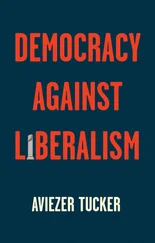Various - Essays in Liberalism
Здесь есть возможность читать онлайн «Various - Essays in Liberalism» — ознакомительный отрывок электронной книги совершенно бесплатно, а после прочтения отрывка купить полную версию. В некоторых случаях можно слушать аудио, скачать через торрент в формате fb2 и присутствует краткое содержание. Жанр: foreign_edu, Политика, на английском языке. Описание произведения, (предисловие) а так же отзывы посетителей доступны на портале библиотеки ЛибКат.
- Название:Essays in Liberalism
- Автор:
- Жанр:
- Год:неизвестен
- ISBN:нет данных
- Рейтинг книги:4 / 5. Голосов: 1
-
Избранное:Добавить в избранное
- Отзывы:
-
Ваша оценка:
- 80
- 1
- 2
- 3
- 4
- 5
Essays in Liberalism: краткое содержание, описание и аннотация
Предлагаем к чтению аннотацию, описание, краткое содержание или предисловие (зависит от того, что написал сам автор книги «Essays in Liberalism»). Если вы не нашли необходимую информацию о книге — напишите в комментариях, мы постараемся отыскать её.
Essays in Liberalism — читать онлайн ознакомительный отрывок
Ниже представлен текст книги, разбитый по страницам. Система сохранения места последней прочитанной страницы, позволяет с удобством читать онлайн бесплатно книгу «Essays in Liberalism», без необходимости каждый раз заново искать на чём Вы остановились. Поставьте закладку, и сможете в любой момент перейти на страницу, на которой закончили чтение.
Интервал:
Закладка:
REPARATIONS AND INTER-ALLIED DEBT
By John Maynard Keynes
M.A., C.B.; Fellow of King’s College, Cambridge; Editor of Economic Journal since 1912; principal representative of the Treasury at the Paris Peace Conference, and Deputy for the Chancellor of the Exchequer on the Supreme Economic Council, Jan.-June, 1919.
Mr. Keynes said:—I do not complain of Lord Balfour’s Note, provided we assume, as I think we can, that it is our first move, and not our last. Many people seem to regard it as being really addressed to the United States. I do not agree. Essentially it is addressed to France. It is a reply, and a very necessary reply, to the kites which M. Poincaré has been flying in The Times and elsewhere, suggesting that this country should sacrifice all its claims of every description in return for—practically nothing at all, certainly not a permanent solution of the general problem. The Note brings us back to the facts and to the proper starting-point for negotiations.
In this question of Reparations the position changes so fast that it may be worth while for me to remind you just how the question stands at this moment. There are in existence two inconsistent settlements, both of which still hold good in law. The first is the assessment of the Reparation Commission, namely, 132 milliard gold marks. This is a capital sum. The second is the London Settlement, which is not a capital sum at all, but a schedule of annual payments calculated according to a formula; but the capitalised value of these annual payments, worked out on any reasonable hypothesis, comes to much less than the Reparation Commission’s total, probably to not much more than a half.
The Breakdown of Germany
But that is not the end of the story. While both the above settlements remain in force, the temporary régime under which Germany has been paying is different from, and much less than, either of them. By a decision of last March Germany was to pay during 1922 £36,000,000 (gold) in cash, plus deliveries in kind. The value of the latter cannot be exactly calculated, but, apart from coal, they do not amount to much, with the result that the 1922 demands are probably between a third and a quarter of the London Settlement, and less than one-sixth of the Reparation Commission’s original total. It is under the weight of this reduced burden that Germany has now broken down, and the present crisis is due to her inability to continue these reduced instalments beyond the payment of July, 1922. In the long run the payments due during 1922 should be within Germany’s capacity. But the insensate policy pursued by the Allies for the last four years has so completely ruined her finances, that for the time being she can pay nothing at all; and for a shorter or longer period it is certain that there is now no alternative to a moratorium.
What, in these circumstances, does M. Poincaré propose? To judge from the semi-official forecasts, he is prepared to cancel what are known as the “C” Bonds, provided Great Britain lets France off the whole of her debt and forgoes her own claims to Reparation. What are these “C” Bonds? They are a part of the London Settlement of May, 1921, and, roughly speaking, they may be said to represent the excess of the Reparation Commission’s assessment over the capitalised value of the London Schedule of Payments, and a bit more. That is to say, they are pure water. They mainly represent that part of the Reparation Commission’s total assessment which will not be covered, even though the London Schedule of Payments is paid in full.
In offering the cancellation of these Bonds, therefore, M. Poincaré is offering exactly nothing. If Great Britain gave up her own claims to Reparations, and the “C” Bonds were cancelled to the extent of France’s indebtedness to us, France’s claims against Germany would be actually greater, even on paper, than they are now. For the demands under the London Settlement would be unabated, and France would be entitled to a larger proportion of them. The offer is, therefore, derisory. And it seems to me to be little short of criminal on the part of The Times to endeavour to trick the people of this country into such a settlement.
Personally, I do not think that at this juncture there is anything whatever to be done except to grant a moratorium. It is out of the question that any figure, low enough to do Germany’s credit any good now, could be acceptable to M. Poincaré, in however moderate a mood he may visit London next week. Apart from which, it is really impossible at the present moment for any one to say how much Germany will be able to pay in the long run. Let us content ourselves, therefore, with a moratorium for the moment, and put off till next year the discussion of a final settlement, when, with proper preparations beforehand, there ought to be a grand Conference on the whole connected problem of inter-Governmental debt, with representatives of the United States present, and possibly at Washington.
The Illusion of a Loan
The difficulties in the way of any immediate settlement now are so obvious that one might wonder why any one should be in favour of the attempt. The explanation lies in that popular illusion, with which it now pleases the world to deceive itself—the International Loan. It is thought that if Germany’s liability can now be settled once and for all, the “bankers” will then lend her a huge sum of money by which she can anticipate her liabilities and satisfy the requirements of France.
In my opinion the International Loan on a great scale is just as big an illusion as Reparations on a great scale. It will not happen. It cannot happen. And it would make a most disastrous disturbance if it did happen. The idea that the rest of the world is going to lend to Germany, for her to hand over to France, about 100 per cent. of their liquid savings—for that is what it amounts to—is utterly preposterous. And the sooner we get that into our heads the better. I am not quite clear for what sort of an amount the public imagine that the loan would be, but I think the sums generally mentioned vary from £250,000,000 up to £500,000,000. The idea that any Government in the world, or all of the Governments in the world in combination, let alone bankrupt Germany, could at the present time raise this amount of new money (that is to say, for other purposes than the funding or redemption of existing obligations) from investors in the world’s Stock Exchanges is ridiculous.
The highest figure which I have heard mentioned by a reliable authority is £100,000,000. Personally, I think even this much too high. It could only be realised if subscriptions from special quarters, as, for example, German hoards abroad, and German-Americans, were to provide the greater part of it, which would only be the case if it were part of a settlement which was of great and obvious advantage to Germany. A loan to Germany, on Germany’s own credit, yielding, say, 8 to 10 per cent., would not in my opinion be an investor’s proposition in any part of the world, except on a most trifling scale. I do not mean that a larger anticipatory loan of a different character—issued, for example, in Allied countries with the guarantees of the Allied Government, the proceeds in each such country being handed over to the guaranteeing Government, so that no new money would pass—might not be possible. But a loan of this kind is not at present in question.
Yet a loan of from £50,000,000 to £100,000,000—and I repeat that even this figure is very optimistic except as the result of a settlement of a kind which engaged the active goodwill of individual Germans with foreign resources and of foreigners of German origin and sympathies—would only cover Germany’s liabilities under the London Schedule for four to six months, and the temporarily reduced payments of last March for little more than a year. And from such a loan, after meeting Belgian priorities and Army of Occupation costs, there would not be left any important sum for France.
Читать дальшеИнтервал:
Закладка:
Похожие книги на «Essays in Liberalism»
Представляем Вашему вниманию похожие книги на «Essays in Liberalism» списком для выбора. Мы отобрали схожую по названию и смыслу литературу в надежде предоставить читателям больше вариантов отыскать новые, интересные, ещё непрочитанные произведения.
Обсуждение, отзывы о книге «Essays in Liberalism» и просто собственные мнения читателей. Оставьте ваши комментарии, напишите, что Вы думаете о произведении, его смысле или главных героях. Укажите что конкретно понравилось, а что нет, и почему Вы так считаете.












